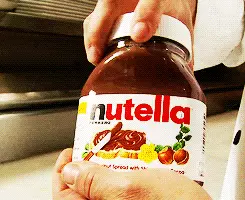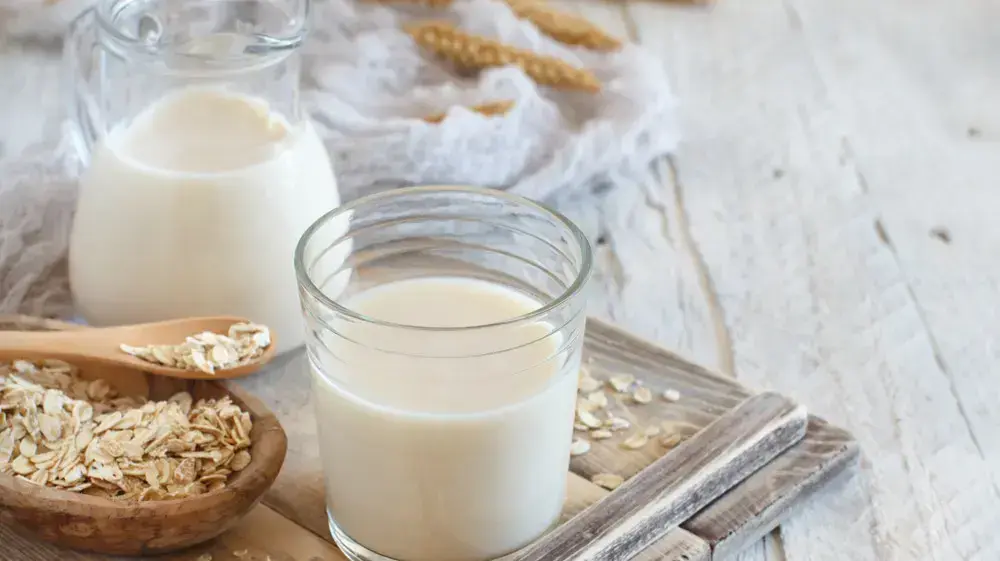Enlarge image
Young, modern, ecologically flawless:
the oat milk manufacturer Oatly knows that it is on the side of the good
Photo: ADAMKLINGETEG / Oatly Group
"Sustainability is the core of our business," writes Oatly in his prospectus. If you replace your cow's milk with the oat products of the Swedes, it is said there, the associated greenhouse gas emissions by 80 percent, the required agricultural area by 79 percent and the energy consumption in the production process by 60 percent. There is hardly any room for doubt: If there is a counterpart for the classic do-gooders at company level, then the oat drink producer Oatly, which is now about to go public on the US stock exchange, is a hot candidate.
Because Oatly doesn't just do good. Rather, the company does not miss an opportunity to publicly and emphatically point this out - and to rub its inadequacy under the nose to anyone who is not on its side, just as publicly.
In the past, the Swedish dairy and agriculture industries in particular had to experience this, which Oatly has been putting under pressure with aggressive advertising for years. The advertising strategists of the oat drink manufacturer with headquarters in Malmö, for example, loudly urged their compatriots in advertisements and on posters to "dump the milk" ("Spola Mjölken"). After all, the in-house product has a significantly better carbon footprint. A campaign with which Oatly turned against the dairy farmers as well as many farmers in Sweden. They saw themselves wrongly branded scapegoats.
The conflict, sometimes referred to as the "milk war" by Swedish newspapers, ultimately even ended up in court: The dairy industry had Oatly forbidden to refer to his drink as "oat milk".
According to this, only "oat drink" is allowed, and similar restrictions apply to other products borrowed from common dairy products - for example oat yoghurt.
Oatly's sales recently grew by more than 100 percent a year
In addition, the Scandinavian dairy giant Arla took on the PR countermeasure: In commercials, the group provided Oatly-like products with fantasy names such as "Trölk" (in German: "Trilch") or "Brölk" ("Brilch") in order to close them to mock. Oatly, however, was quick-witted: The oat mixers secured the rights to the mock name so that they could actually use them for their own products.
It is clear that the parties are only arguing on the surface about environmental compatibility and ecological aspects. At its core, it is about tough economic competition, sales and market shares. Oatly, which describes itself as the "first and largest oat milk company in the world" (mind you: Oatly continues to use the term "oat
milk
"
in the prospectus
), achieved total sales of around 421 million dollars in 2020 according to its prospectus. The Swedes are not really getting in the way of the global dairy industry, which the company says has an annual turnover of around 592 billion dollars.
But Oatly is growing rapidly. Sales were only around $ 204 million in 2019 and around $ 118 million in 2018. The growth rate has thus recently increased from around 73 percent to more than 100 percent. Analysts generally predict that the market for plant-based alternatives to dairy products will continue to grow rapidly. And the global milk market as a whole is estimated to grow by almost 6 percent annually to nearly $ 800 billion by 2025.
Things are particularly dynamic at Oatly, with an annual increase of 182 percent in the USA and 199 percent in Germany.
On the other hand, the Swedes share a fate with many other rapidly expanding start-ups: Oatly is not yet making any profits.
In fact, 2019 saw a net loss of $ 35.6 million, which increased to $ 60.4 million the following year.
Enlarge image
Enzyme to liquid oats:
Oatly co-founder
Rickard Öste
now
reportedly
spends a large part of his time in Hong Kong
Photo: Edin Sandic / Oatly
Oatly was created in the 1990s when the Swedish researcher
Rickard Öste
at Lund University found a way to convert oats into a milky liquid with the
help of
an enzyme. Öste founded together with his brother
Björn
the company Oatly - the beginning of a world conquest.
Oatly is now present in all major European countries.
The company started in the USA in 2017, followed by China in 2018.
In total, Oatly products are sold in more than 20 countries today, with the spectrum now ranging from oat drinks to various fruit and chocolate drinks and oat yoghurt to oat cream, and all of this in variants such as low-fat or organic.
The company is not only successful in supermarkets, but also in cafes such as Starbucks and other localities in large cities.
Criticism of Trump's friend among Oatly investors
"People see fast-growing companies in Silicon Valley and may not consider triple-digit growth rates in the food industry to be something extraordinary," said Oatly founder Björn Öste some time ago in Forbes magazine on the company's expansion. "But just imagine how much additional planting space would be required if you only increase from 20 truck deliveries to 40 a day." Compared to the tech industry, it is actually something completely different when physical goods have to be transported around the globe, says Öste.
So that things can go further, Oatly is now planning to go public: the company and its existing shareholders want to collect a total of up to 1.4 billion dollars on Wall Street. With the expected issue price of up to 17 dollars per share (so-called ADS, ie "American Depositary Shares"), Oatly could come to a valuation of a good ten billion dollars.
This also reflects the enormous growth of the oat company.
In the most recent round of financing in the summer of last year, Oatly was valued at two billion dollars.
At that time, the US investment giant Blackstone got into the Swedes, with $ 200 billion he acquired 10 percent of the company.
The deal was anything but good in Oatly's fan base - after all, Blackstone boss
Stephen Schwarzman
(74) is considered the buddy of the then US President
Donald Trump
(74), also known as the notorious climate change denier.
Doubtful friends in China
At the same time as Blackstone, several other prominent investors took part in Oatly last year, such as the US television presenter
Oprah Winfrey
(67), ex-Starbucks boss
Howard Schultz
(67), US rap star
Jay-Z
(51) and film actress
Natalie Portman
(39).
"Taste is king"
Oatly co-founder
Björn Öste
told "Forbes" about the success of his oat drink on the world market
Blackstone is by no means the only gray mark on Oatly's white good-company vest. Also among the shareholders is China Ressources, a state-owned company of the People's Republic of China, with a considerable share in the mid double-digit percentage range. As is well known, the country has not exactly earned a reputation for being one of the most determined fighters against environmental pollution and climate change. In the "milk war" in Sweden, Oatly's opponents have already targeted this weak point, whereupon oat milk inventor Rickard Öste, according to media reports, had little more than a shrug of the shoulders.
Oatly's future is unlikely to be endangered by questions about donors anyway.
Because the secret of the company's success apparently lies elsewhere.
"It's really easy," Björn Öste told Forbes magazine on this question.
"The taste decides."
cr








